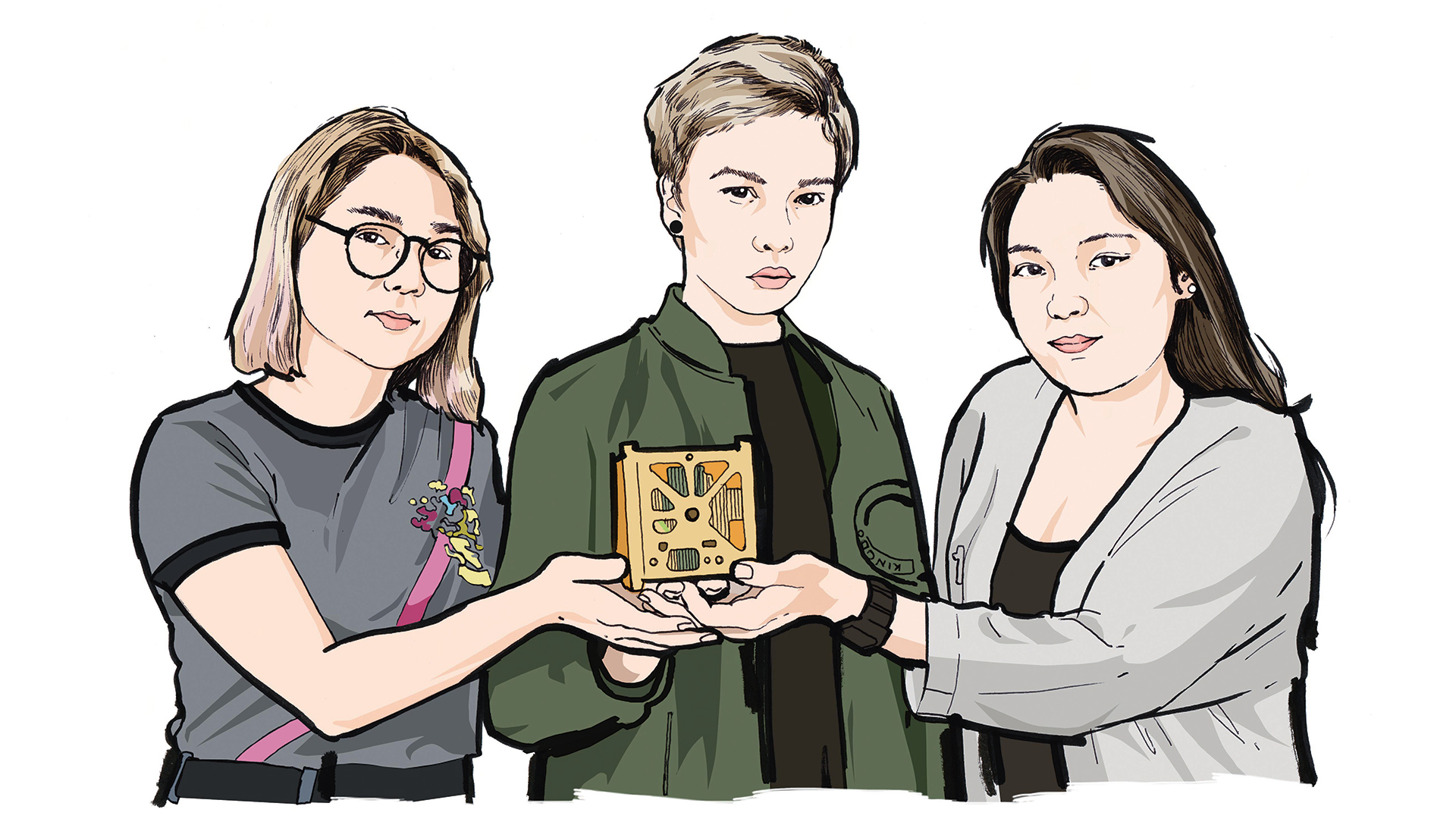Inthe mountains of Central Asia, nine young women are soldering their way to space.They make up the Kyrgyzstan Space Programme, a unique project working towards launching the country’s first ever satellite. But their goal isn’t just technological advancement for their country, which hasn’t had a space programme since the collapse of the Soviet Union in 1991.
The so-called ‘satellite girls’ are on a mission to tear down gender norms and push women to the forefront of science – at a time when gender inequality is rife across the country. Kyrgyz police have been known to refuse domestic violence complaints while one in five women are kidnapped and forced into marriage.
The project was launched out of an independent journalism school, Kloop Media Foundation, after the organisation’s co-founders Bektour Iskender and Rinat Tuhvatshin recognised a huge gender disparity in the programming classes it offered: at first, two women showed up. When women-only robotics classes ran in 2017, more than 50 got involved.
A chance encounter with NASA executive Alex MacDonald was the catalyst that set the space programme in motion. He met Iskender and told him about CubeSats, the latest in relatively affordable microsatellites that can be built with basic tools. Two years later, when Iskender saw the success of their robotics classes, this tidbit of knowledge unlocked what he knew had to be their next project. It was time to push their women programmers to a new frontier: space.
In March 2018, applications opened and the project was promoted on social media. Hopeful women between 17 and 25 were asked to fill in a Google document detailing their strengths and interests. No experience was necessary.
“Usually when people write about our country, it’s about the oppression faced by women here,” says programme director Kyzzhibek Batyrkanova. “But now we have something positive to focus on and build towards.” The 24-year-old data scientist leads the team of hand-picked young women as they study the theory they need and learn to 3D print, code and solder. They’re funded via Patreon after they estimated their satellite would cost $150,000 to produce.









